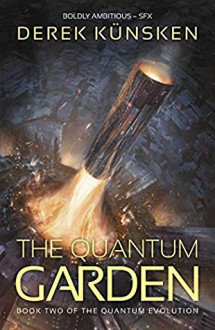
Dominic "Nicky" DeSota is a Chicago mortgage broker in trouble. Arrested by the FBI, he is accused of breaking into a nearby government lab — only at the time, DeSota was on a weekend trip to New York City. This isn't good enough, however, for a moralistic and oppressive federal government, because if it wasn't DeSota, who else could it have been?
Dominic DeSota is a United States senator enjoying a romantic night with the world-renowned violinist with whom he is having an affair when he is asked to fly to a military research lab in Sandia, New Mexico. When he arrives he learns that the military police have Dominic DeSota in custody, a man who is the senator's exact double. Under interrogation, the captive DeSota provides only cryptic answers — just before vanishing right before them.
Dominic DeSota is a United States Army major who has been assigned to an assault team invading another world. Their mission is part of a larger plan designed to use the newfound ability to cross over onto parallel Earths to defeat the Soviet Union and win the Cold War. This plan begins to fall apart, though, when the America they invade proves less than cooperative. And then there is the growing problem of ballistic recoil . . .
Frederick Pohl was one of the grand masters of science fiction's Golden Age. During a career that spanned over seventy years he wrote or co-wrote nearly five dozen novels, some of which endure as classics of the genre. This book is not regarded as one of his best works, in part because of its focus on a particular time and place. Set in the then-contemporary world of 1983, the novel follows the different incarnations of three characters as they discover the existence of their counterparts. As their worlds come into conflict with one another, these characters confront their alternate selves and ponder the differences suddenly before them.
While Pohl uses his premise to address the allure of the life unlived and the degree to which we are defined by the world around us, his main interest is on commenting on the growing conflict between the various Americas he describes. For the most part these worlds are satirical takes on the America of his time, consisting of a police state run by religious fundamentalists, a thinly-veiled military dictatorship, and a complacent self-obsessed superpower. What makes Pohl's novel stand out from similar works of its type is in how he presents these worlds, not by scattering extended infodumps in his text but through the differences between the characters from them. By showing how the lives of Dominic DeSota, Nyla Christophe, and Larry Douglas differed because of their circumstances, he provides a work of alternate history that is among the best of its type. This is why, for all of its datedness, it is still a novel that is very much worth reading.

 Log in with Facebook
Log in with Facebook 








